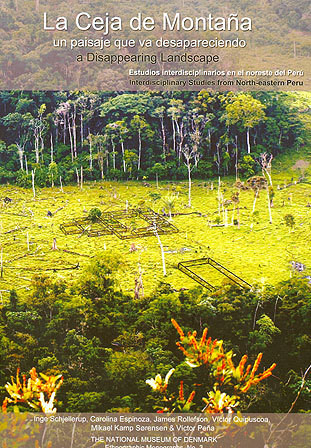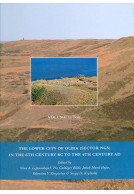Google Books previews are unavailable because you have chosen to turn off third party cookies for enhanced content. Visit our cookies page to review your cookie settings.
La Ceja de Montana (Paperback)
Un pasiaje que va desapareciendo
Imprint: Aarhus University Press
Series: National Museum of Denmark Ethnographic Monograms
Pages: 500
Illustrations: colour photos & tables
ISBN: 9788776021306
Published: 1st January 2009
Script Academic & Professional
Series: National Museum of Denmark Ethnographic Monograms
Pages: 500
Illustrations: colour photos & tables
ISBN: 9788776021306
Published: 1st January 2009
Script Academic & Professional
You'll be £24.00 closer to your next £10.00 credit when you purchase La Ceja de Montana. What's this?
+£4.99 UK Delivery or free UK delivery if order is over £40
(click here for international delivery rates)
Order within the next 9 hours, 58 minutes to get your order processed the next working day!
Need a currency converter? Check XE.com for live rates
(click here for international delivery rates)
Order within the next 9 hours, 58 minutes to get your order processed the next working day!
Need a currency converter? Check XE.com for live rates
Text in English & Spanish. This book is the third and last in a series of three focusing on the deplorable development in the Ceja de Selva from Rodriguez de Mendoza to Soritor (Moyobamba). The interdisciplinary research at the regional level has shown how the natural and cultural landscape has changed dramatically over time, depending on the people, crops, and markets present. The forest with its biological diversity is disappearing fast along with the cultural remains from pre-hispanic times. Archaeological, ethnohistorical, anthropological, botanical and geographical investigations present a status quo on the landscape changes and many of the problems the migrating colonos face in their new environment. The book is also a reminder for the regional and national governments to take serious measures before the fragile landscape of the Ceja de Selva has lost its unique characteristics. Text in Spanish and English. This book is the third and last in a series of three focusing on the deplorable development in the Ceja de Selva from Rodriguez de Mendoza to Soritor (Moyobamba). The interdisciplinary research at the regional level has shown how the natural and cultural landscape has changed dramatically over time, depending on the people, crops, and markets present. The forest with its biological diversity is disappearing fast along with the cultural remains from pre-hispanic times. Archaeological, ethnohistorical, anthropological, botanical and geographical investigations present a status quo on the landscape changes and many of the problems the migrating colonos face in their new environment. The book is also a reminder for the regional and national governments to take serious measures before the fragile landscape of the Ceja de Selva has lost its unique characteristics.
Other titles in the series...
Other titles in Aarhus University Press...













